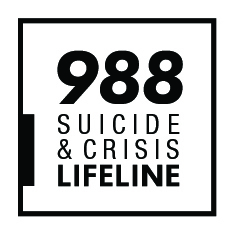Mental Health Matters: CMH provides free tobacco cessation program
There’s a new program at West Michigan Community Mental Health that focuses on reducing tobacco usage in our local community.
Called Dimensions, the six-week tobacco cessation group provides adults who want to quit smoking with the tools and support they need to achieve their goals. The group meets weekly at the CMH offices in Ludington, Baldwin and Hart and covers topics such as stress management, wellness and behavior change techniques. The program is free and open to the public.
“Dimensions is an evidence-based program that encourages a person to look at their values, or assists them in identifying them, and how smoking may not be inline with those values,” said Karen Howell-Duncan, a certified peer support specialist with West Michigan CMH. “This program helps people set small, attainable goals, which helps to increase their confidence in their ability to quit.”
CMH’s efforts to help reduce tobacco usage aligns with measures being taken on both the federal and state levels. In September, Michigan Governor Gretchen Whitmer signed legislation that made Michigan the first state in the nation to ban flavored nicotine vaping products. Last month, President Donald Trump signed a new law that prohibits the sale of tobacco products to anyone under the age of 21.
Smoking is the leading cause of preventable death in the United States. It’s known to cause heart disease, stroke, lung disease, increase the risk of several types of cancers, along with numerous other medical problems. According to the Centers for Disease Control and Prevention, smoking kills more people each year than alcohol, drugs, car accidents, AIDS, murders and suicides combined.
For those suffering from mental illness and substance use disorders, the statistics are even more alarming. 30 percent of individuals with mental illness and substance use disorders are smokers, which is more than double the rate of the general population. Every year, smoking kills about 200,000 people who live with mental illness.
“Tobacco use among those with mental illness tends to be higher due to many factors,” said Howell-Duncan. “Research shows that biological, psychological and social factors may be involved. This is where learning new coping skills in the Dimensions group can be beneficial.”
As it relates to mental illness, a biological factor would include nicotine’s positive effects on mood, feelings of pleasure and enjoyment. Psychological factors include how tobacco use may temporarily relieve feelings of tension and anxiety and is often used to cope with stress.
Tobacco use also strongly correlates with the development of other substance use disorders given the fact that nicotine affects the same neural pathway as alcohol, opioids, cocaine and marijuana.
Smoking also increase the breakdown of medicines in the body. For example, a person who is prescribed psychiatric medications would need to take higher doses to get the same results as someone who does not smoke.
“The good news is people can quit successfully when they are given the proper cessation supports to do so,” Howell-Duncan said.
Anyone is welcome to attend the Dimensions tobacco cessation program at West Michigan CMH. You do not need to be a CMH patient to participate. There is no cost to attend. For more information or to register, call (231) 843-5434 or visit www.wmcmhs.org/our-services/tobacco-cessation-group.
Lori Schummer is the Director of Public Relations and Customer Services at West Michigan Community Mental Health. She may be reached by calling (231) 843-5485 or email lori3s@wmcmhs.org.
 or
or 
